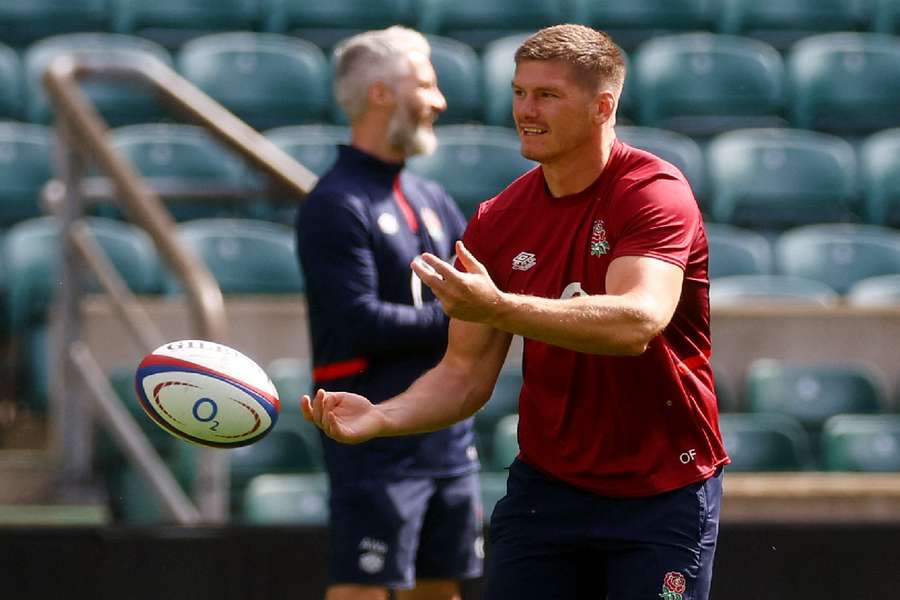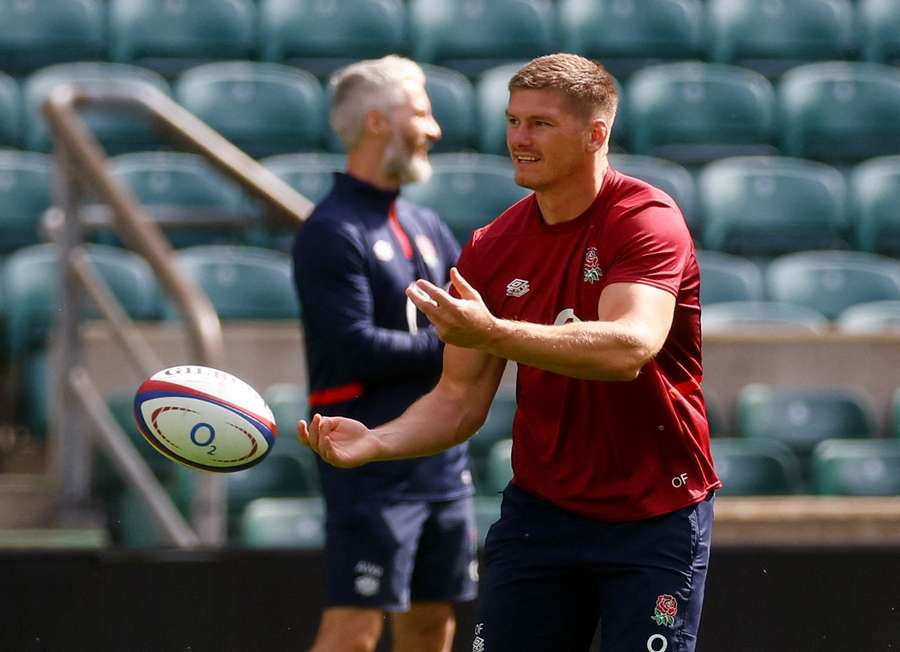Owen Farrell ban could give England clarity ahead of World Cup campaign

The England captain was sent off after smashing his shoulder into the face of Wales forward Taine Basham in the sort of no-arms tackle that earned him a four-game ban earlier this season when playing for Saracens.
That ban was reduced by a match for attending "tackle school" - which he can do only once - so a minimum of another four would look the most probable outcome. That would rule him out of England's remaining two warm-ups against Ireland and Fiji and their first two World Cup games against Argentina and Japan - their biggest pool rivals.
However, while Farrell is undoubtedly the beating heart of the team, a warrior who every coach wants in his side, his enforced absence paves the way for George Ford to slot in at flyhalf, with the mercurial talents of Marcus Smith on the bench.

Ford had already come on at 10 in Saturday's match, with Farrell moving to centre in the arrangement that worked so well during the 2019 World Cup.
Ford delivered a cool performance as England, down to 12 men against 15, somehow fashioned a try for Maro Itoje and then won the game with Ford's late penalty.
His precision and leadership - less vocal but more structured than Farrell's - were key in the comeback, and England would hardly be weaker with him as the starting 10.
Coach Steve Borthwick's admiration of him and Farrell meant it was looking increasingly unlikely that Smith would play a major role at the World Cup. But he now looks to have the opportunity to come on from the bench and unleash his bag of tricks against a tiring opposition.
Farrell's absence also means that Borthwick can pick two specialist centres, with Ollie Lawrence and Manu Tuilagi looking a pretty potent combination.
Obviously it is far from ideal for a team to be heading into a tournament with so many unknowns in their backline but, given how thin England's attack has looked in recent games, it is hardly a case of breaking up a smooth-running machine.
After Saturday's match the try balance sheet now reads three for, 15 against in their last four games.
The spirited late comeback and the battle against adversity caused by three further yellow cards gave the Twickenham fans something to celebrate, but in the cold light of day it was another toothless display.
For the first hour, England hardly fired a shot, looking even less dangerous than in last week's defeat in Cardiff when they at least routinely threatened the try line, before too often spilling the ball.
On Saturday they were unable to work explosive winger Henry Arundell into any space, and Lawrence started to make ground only in the latter stages.
Borthwick insisted that there was improvement in set piece and defence and that attack is always the last piece of the jigsaw, and fans will have to hope he is holding something back for the World Cup.
Farrell will discover his fate this week, when Borthwick will also find out the extent of the serious-looking leg injury suffered by first-choice scrumhalf Jack van Poortvliet.
